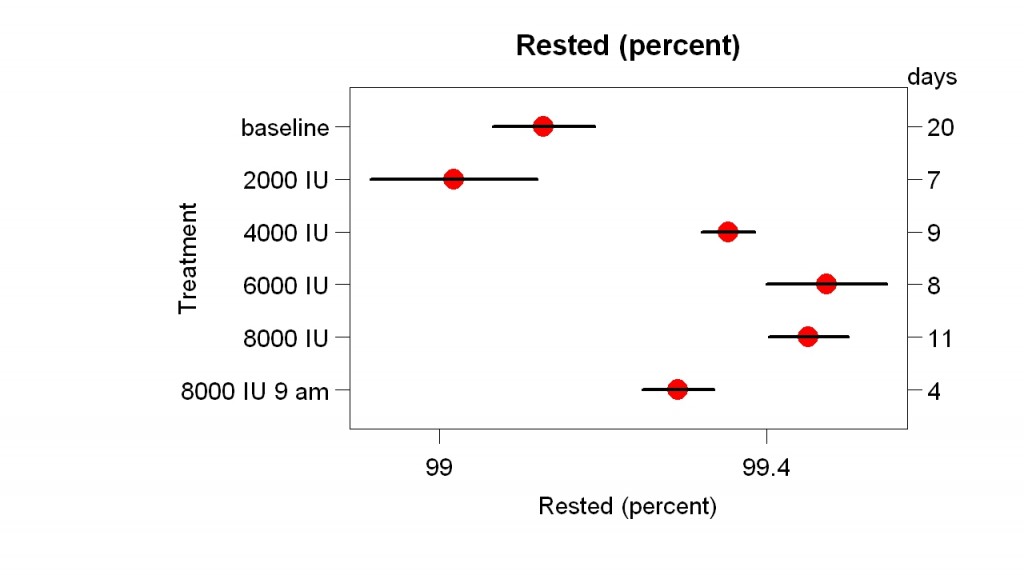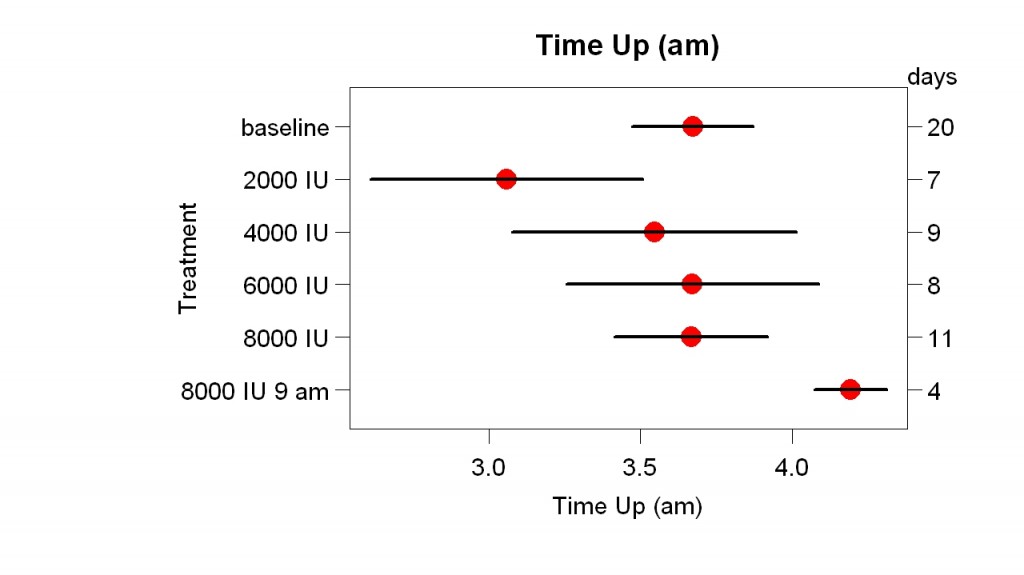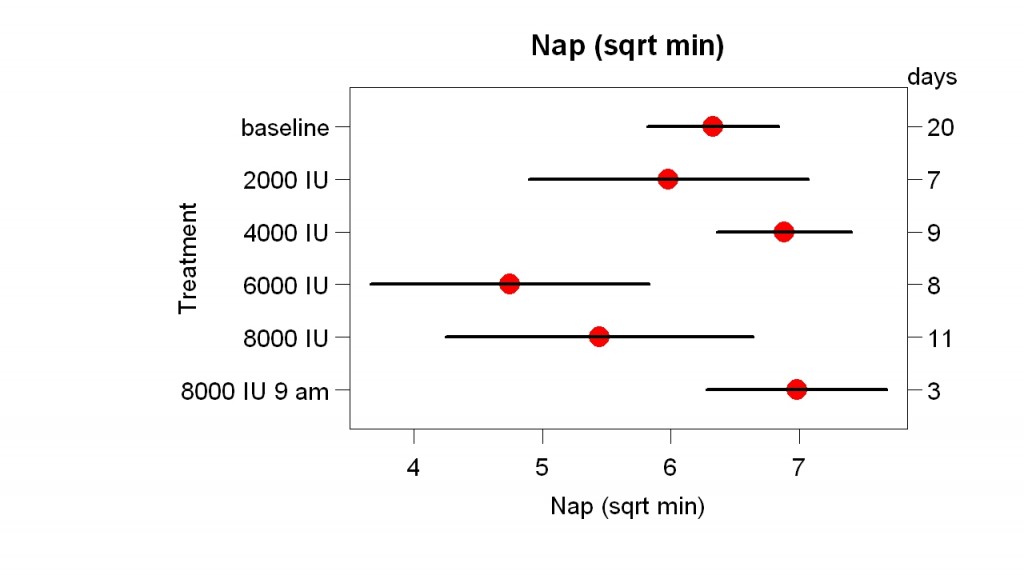Patrick Tucker, an editor at The Futurist, posted a request on the Quantified Self Forums for “astounding” predictions based on self-quantification. He is writing a book about using data to make predictions.
Here are examples from my self-measurement:
1. Drinking sugar water causes weight loss. The self-quantification was measuring my weight. It began when I found a new way to lose weight, which pushed me to try to explain why it worked. The explanation I came up with — a new theory of weight control — made two predictions that via self-experimentation I found to be true. That gave me faith in the theory. Then the theory suggested a really surprising conclusion, that loss of appetite during a trip to Paris was due to the sugar-sweetened soft drinks I had been drinking. If so, drinking sugar water should cause weight loss. (The nearly-universal belief is that sugar causes weight gain, of course.) I tested this prediction and it was true. More.
2. Seeing faces in the morning improves mood the next day (but not the same day). This is so surprising I’ll spell it out: Seeing faces Monday morning improves my mood on Tuesday but not Monday. For years I measured my sleep trying to reduce early awakening. Finally I figured out that not eating breakfast helped. There was no breakfast during the Stone Age; this led me to take seriously the idea that other non-Stone-Age aspects of my life were also hurting my sleep. That was one reason I decided to watch to watch a certain TV show one morning. It had no immediate effect. However, the next morning I woke up feeling great. Via self-measurement of mood, I determined it was the faces on TV that produced the effect, confirmed the effect many times, and learned what details of the situation (e.g., face size) controlled the effect. More.
3. One-legged standing improves sleep. Via self-measurement I determined that how much I stood during a day controlled how well I slept. If I stood a long time, I slept better. Ten years later I woke one day after having slept much better than usual. The previous day had been unusual in many ways. One of them was so tiny that at first I overlooked it: I had stood on one leg a few times. Just for a few minutes. Yet it turned out that it was the one-legged standing that had improved my sleep. Without the previous work on ordinary standing I would have ignored the one-legged standing — it seemed trivial.
4. Butter is healthy. I found that butter improved how fast I can do arithmetic problems. No doubt it improves brain function measured in other ways. Because the optimum nutrition for the brain will be close to the optimum nutrition for the rest of the body — at least, this is what I believe — I predict that butter will turn out to be healthy for my whole body, not just my brain.
5. Mainstream Vitamin D research is all messed up. Via self-measurement I confirmed Tara Grant’s conclusion that taking Vitamin D3 in the morning (rather than later) improved her sleep. It improved my sleep, too. When I had taken it at other times of day I had noticed nothing. Apparently the timing of Vitamin D — the time of day that you take it — matters enormously. Take it at the right time in the morning: obvious good effect. Take it late in the evening: obvious bad effect. Vitamin D researchers haven’t realized this. They have neither controlled when Vitamin D is taken (in experiments) nor measured when it is taken (in surveys). Because timing matters so much it is as if they have done their research failing to control or measure dose. If you fail to control/measure dose, whatever conclusion you reach (good/no effect/bad) depends entirely on what dose your subjects happened to take. And you have no idea what dose that is.


